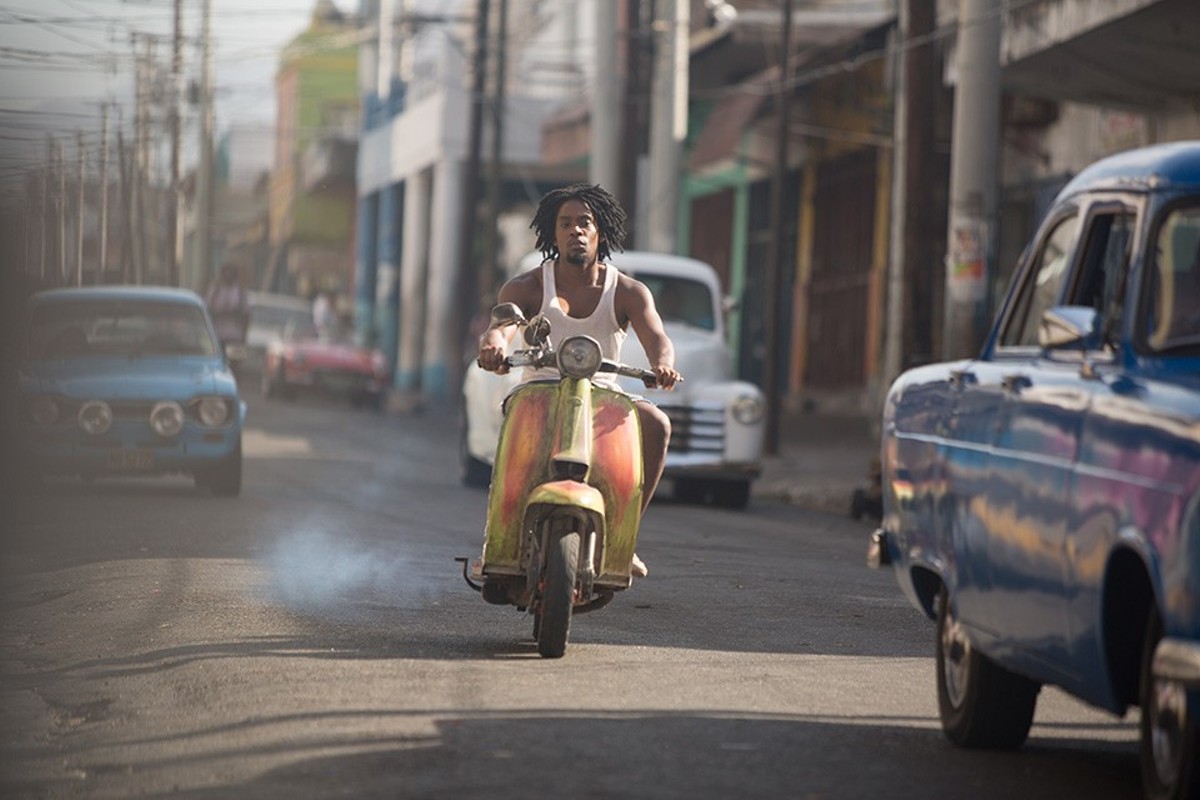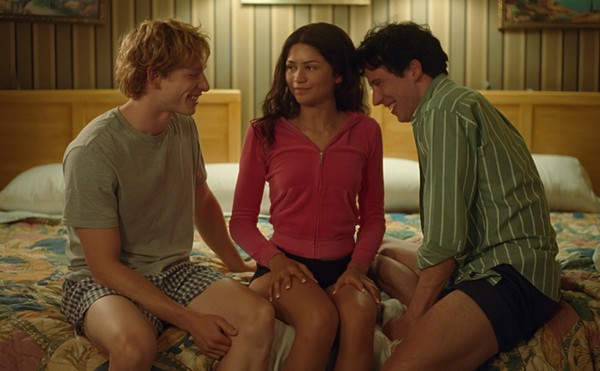In 1972, the Jamaican film The Harder They Come linked for international audiences the criminal underworld of Kingston and the raw, energetic sounds of reggae music. In it, Ivan (Jimmy Cliff) is pushed into a life of crime when he just wants a hit record. The movie has been credited with bringing "reggae to the world."
Nearly half a century later, Cliff's film debut still casts a long shadow, as evidenced by its obvious influence on Yardie, which is based on the Victor Headley novel and marks the directorial debut of actor Idris Elba. Like The Harder They Come, it follows a character pushed unwillingly into a life of crime and violence but also deploys an instinctive feel for music — in this case, reggae-inspired rap clashes between teams of DJs affiliated with gangsters.
Yardie begins in 1970s Jamaica, where Dennis, also known as D, watches his older brother get shot down while hosting an impromptu street party calling for peace between rival gangs. A few years later, Dennis (Aml Ameen), now working for gangster/producer King Fox (Sheldon Shepherd) and occasionally visited by the ghost of his brother, called a "duppy," is sent to England to deliver a bundle of cocaine to unhinged mob boss Rico. Settling in quickly, he reunites with his young wife, plots revenge against his brother's murderer and develops a plan to outwit the criminal bosses, while simultaneously rocking the mic with the High Noon sound crew.
Familiar yet slightly unhinged, Yardie steps through the generic steps of Headley's story lightly enough to hold your attention, even though it's something of a mess. As a director, Elba isn't particularly ambitious (note to inexperienced filmmakers: Next time you're walking by a playground while wondering how best to express your character's loss of innocence, keep walking). He nevertheless develops a strong sense of empathy with his cast and gives them plenty of room to jostle each other. And as Dennis, Ameen is particularly convincing.
But while the performances are good, Elba never settles on a convincing tone. He wants Yardie to be a naturalistic depiction of the Jamaican community while also sticking to the crime-movie beats, working in a few action sequences and even tossing in a shot of poetic realism (the duppy) for good measure. Ultimately, Yardie is too unsettled for its own good, so distracted by the twists of the story that it loses its rhythm.






